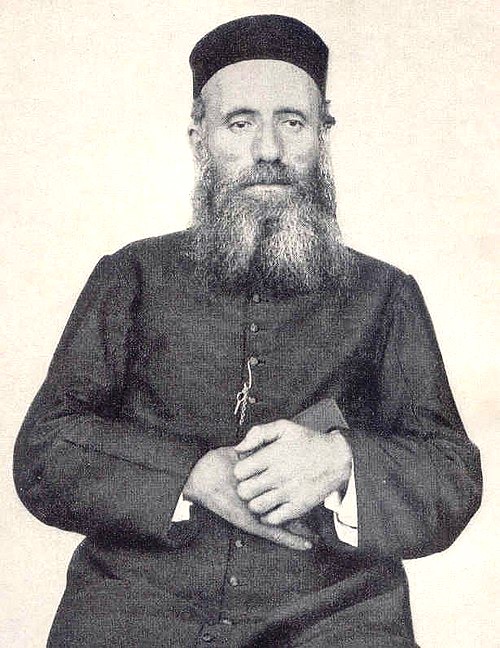A Reading from the Holy Gospel According to John
Since it was preparation day, in order that the bodies might not remain on the cross on the sabbath, for the sabbath day of that week was a solemn one, the Jews asked Pilate that their legs be broken and they be taken down. So the soldiers came and broke the legs of the first and then of the other one who was crucified with Jesus. But when they came to Jesus and saw that he was already dead, they did not break his legs, but one soldier thrust his lance into his side, and immediately blood and water flowed out. An eyewitness has testified, and his testimony is true; he knows* that he is speaking the truth, so that you also may come to believe. For this happened so that the scripture passage might be fulfilled: “Not a bone of it will be broken.” And again another passage says: “They will look upon him whom they have pierced.”
Transcription of Sermon
The Gospel of the Lord.
Traditionally, the Church celebrates the Feast of Corpus Christi on this day, this Thursday. In American dioceses it has been transferred to Sunday, so you will have the Novus Ordo celebration of Corpus Christi, but since today is a ferial old day, which means it’s a liturgically free day, I’m offering the Votive Mass of the Holy Eucharist on this day. And, this is not only Thursday of the Ninth Week of Ordinary Time, it is also a feast of a great, but rather unknown saint, St. James Berthieu.
James was born to a French family, a farming family, around the first half of the 19th century. And as a young boy, he wanted to be a priest. He became a priest. He was ordained and worked effectively with a very deep prayer life founded in the Spiritual Exercises of St. Ignatius. And he worked for nine years in parish life as a spiritual leader, as a spiritual father to many, but he felt a missionary call. And so, he petitioned to join the Jesuits.
And so, he joined the Jesuits as a priest already, and was sent to Madagascar – Madagascar the huge island off of the South East of Africa. And that was a time of lots of interior purification for him. The culture, the language, everything was so difficult for a 37-year-old man to try to appropriate and adopt. A very strange language for him, a culture, a mindset, was all very difficult, and he said he felt useless at times. Nonetheless, he said, “I love these people. I love this place. This is where God wants me,” and he gave himself. He poured himself into his mission.
And this was also a time of great upheaval in Madagascar, which had been colonized by the French, and that was coming to an end and in a violent way. And so, the priests were associated with the colonizers, with the establishment, and so, they were under great danger.
At one point, St. James’s community was under great threat and he contacted a French colonel and asked for protection for him and his flock. And he was refused. And the reason he was refused was that that French Colonel had been mistreating the native women of that island and St. James Berthieu had remonstrated him, corrected him, and said “You can do that.” And the Colonel never forgave him for correcting him. And so, he left them to the attack.
And then they were attacked, and St. James was received a machete blow to his forehead. He bled out a lot, but he still survived, and they made him walk six miles, where he was then mutilated in a horrible way, which I won’t repeat. And then, the natives discussed, “What will we do with him?” And they said, “Let’s just shoot him.” So, he had been bleeding out all day. He was exhausted. And when he saw the men with the rifles coming towards him, he knelt to pray. And they mocked him for praying. And he said, “This is what I have to do my whole life long as long. As I’m in this world, I will pray.” And they shot at him but missed. And then, they shot again, and they missed. And he made the sign of the cross, and then finally they shot him and threw his body in a river.
What we see in the lives of martyrs is they are something of a microcosm of the Passion of Christ. So, think of this man who had great generosity went to a people that were not his own in order to bring them Christ. He was offered survival. They said, “If you renounce Christ, and the Catholic Faith, we will make you a leader in our tribe.” And he said, “I can’t consent to that.” And that was when his fate was sealed.
So, think of how our Lord, who was absolutely faithful to the will of the Father, comes amongst us and is received also in a similar way with scorn, with rejection, with great ingratitude. Martyrs like St. James, they don’t live for worldly benefits. They don’t live for any self-aggrandizement. They live for Christ. And they die for Christ. And they live forever with Christ.
In the Name of the Father, and the Son, the Holy Spirit.
— Fr. Ermatinger

